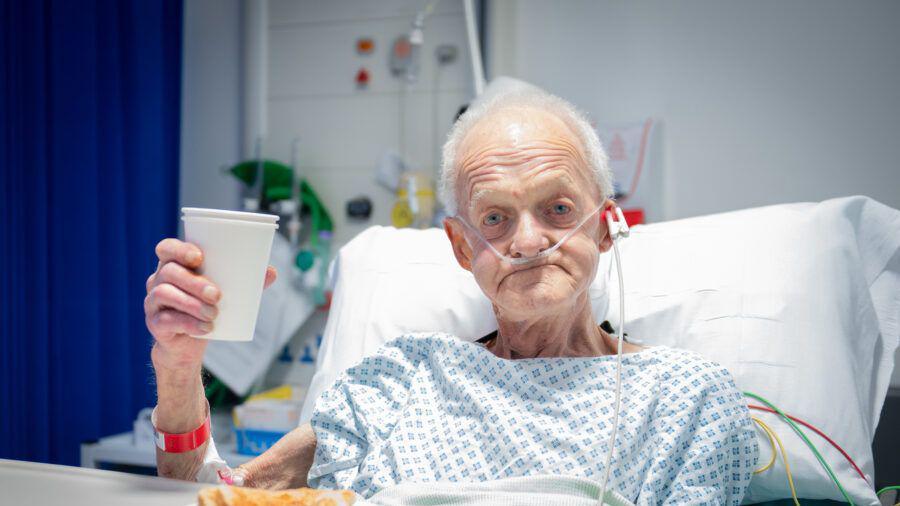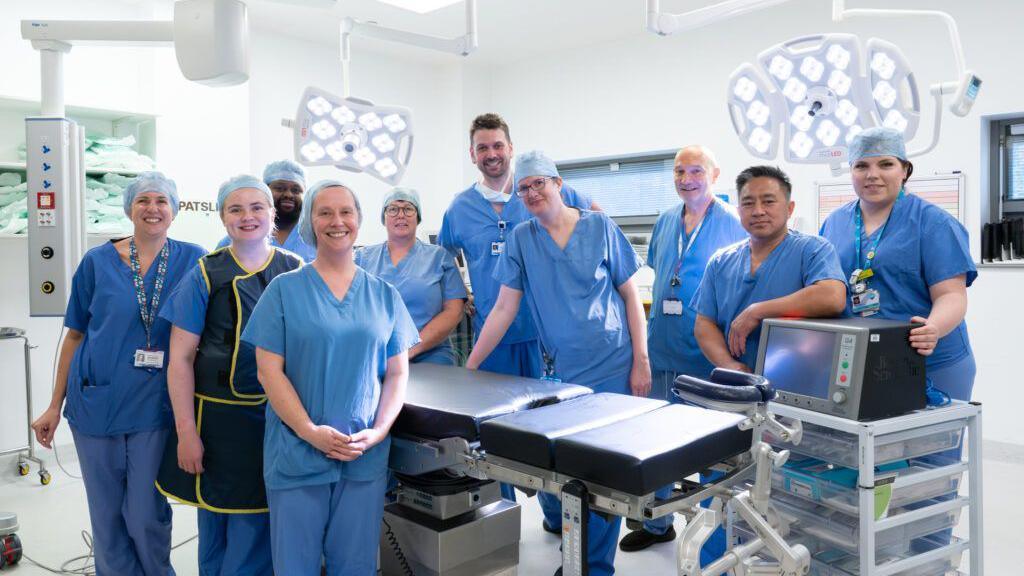New cancer pain relief procedure becomes available

Leslie Thompson said the procedure would "help a lot of people"
- Published
A new procedure to reduce pain for cancer patients has been carried out in Yorkshire for the first time.
Leslie Thompson, 79, was the first person in the region to undergo the treatment, at St James' Hospital in Leeds.
The procedure, which is being offered to some terminally ill cancer patients, involves heating up nerves at the top of the spinal cord to permanently relieve the pain on the affected side of the body.
Mr Thompson, from Yeadon, said he thought the treatment was a "good idea", having suffered "unbelievable" pain from lung cancer.
Leeds has become the fourth centre in the UK to offer the procedure, after London, Glasgow and Liverpool.
NHS bosses said eligible patients from across Yorkshire will no longer have to travel as far for the treatment.
Speaking after the procedure, Mr Thompson said: "I feel less pain in my lung. I think it's a good idea and it will help a lot of other people.
"The pain you get with cancer is unbelievable and it affects lots of people."

Leeds has become the fourth UK centre to offer the procedure
While the nerves responsible for causing the pain are burnt in the neck, patients still retain their ability to walk and move around afterwards.
The procedure involves using a radiofrequency generator, and needles which heat up and burn the nerves on the opposite side of the neck to where the pain is located.
The treatment is only suitable for patients who have pain on one side of the body and are well enough to benefit from the procedure, according to the NHS.
Dr Sheila Black, consultant in anaesthesia and pain management at Leeds Teaching Hospitals NHS Trust, said the procedure would make the last weeks and months of a patient's life "more comfortable".
She said: "I asked Leslie after the procedure: "How is your pain?" and he said: "What pain?". That's really wonderful to hear.
"Lots of the other treatments we have for pain have side effects, like morphine, which can cause sickness and constipation and sometimes still not help relieve the pain."
Get in touch
Tell us which stories we should cover in Yorkshire
Listen to highlights from West Yorkshire on BBC Sounds, catch up with the latest episode of Look North.